
Atakpamé: The Hidden Gem of Togo
Atakpamé is a charming city nestled in the Plateaux Region of Togo. Known for its lush landscapes and friendly locals, this city offers a unique blend of natural beauty and cultural richness. The rolling hills and verdant forests provide a scenic backdrop for a variety of outdoor activities. Whether you're into hiking, bird watching, or simply enjoying a leisurely stroll, Atakpamé has something for every nature lover. The city is also a hub of cultural heritage. Traditional music and dance are integral parts of daily life here. You can often find local festivals where vibrant costumes and rhythmic drumming create an unforgettable atmosphere. The markets are bustling with activity, offering a wide array of handmade crafts, fresh produce, and local delicacies. Don’t miss out on trying some of the local dishes, which are a delightful mix of flavors and spices. Atakpamé is not just about nature and culture; it also has historical significance. The city has several colonial-era buildings that tell the story of its past. A visit to these landmarks offers a glimpse into the history that has shaped this unique place. The warm and welcoming people of Atakpamé add to the charm, making it a must-visit destination for anyone looking to explore the heart of Togo.
Local tips in Atakpamé
- Best time to visit is during the dry season from November to March.
- Bring cash as credit card acceptance is limited.
- Learn a few basic phrases in French, the primary language spoken.
- Visit the local markets early in the morning for the freshest produce.
- Respect local customs and dress modestly when visiting religious sites.
Atakpamé: The Hidden Gem of Togo
Atakpamé is a charming city nestled in the Plateaux Region of Togo. Known for its lush landscapes and friendly locals, this city offers a unique blend of natural beauty and cultural richness. The rolling hills and verdant forests provide a scenic backdrop for a variety of outdoor activities. Whether you're into hiking, bird watching, or simply enjoying a leisurely stroll, Atakpamé has something for every nature lover. The city is also a hub of cultural heritage. Traditional music and dance are integral parts of daily life here. You can often find local festivals where vibrant costumes and rhythmic drumming create an unforgettable atmosphere. The markets are bustling with activity, offering a wide array of handmade crafts, fresh produce, and local delicacies. Don’t miss out on trying some of the local dishes, which are a delightful mix of flavors and spices. Atakpamé is not just about nature and culture; it also has historical significance. The city has several colonial-era buildings that tell the story of its past. A visit to these landmarks offers a glimpse into the history that has shaped this unique place. The warm and welcoming people of Atakpamé add to the charm, making it a must-visit destination for anyone looking to explore the heart of Togo.
When is the best time to go to Atakpamé?
Iconic landmarks you can’t miss
Monument de l'independance
Discover the Monument de l'Indépendance in Lomé, a cultural landmark celebrating Togo's rich heritage and journey to freedom.
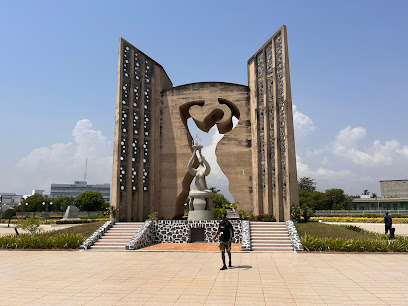
Hôtel Luxembourg
Experience the perfect blend of comfort and local charm at Hôtel Luxembourg in Atakpamé, Togo's inviting retreat for travelers.

Fauna Cultura
Discover the charm of Fauna Cultura Zoo in Lomé, where diverse wildlife and conservation education come together for an unforgettable experience.
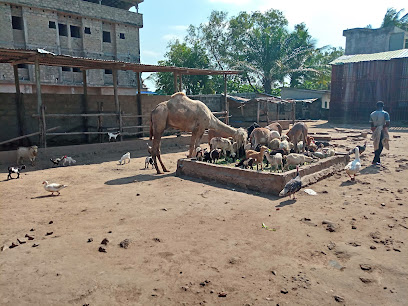
Cascade de Kpimé
Experience the breathtaking beauty of Cascade de Kpimé, a serene waterfall retreat in Apédomé, Togo, surrounded by nature's finest.
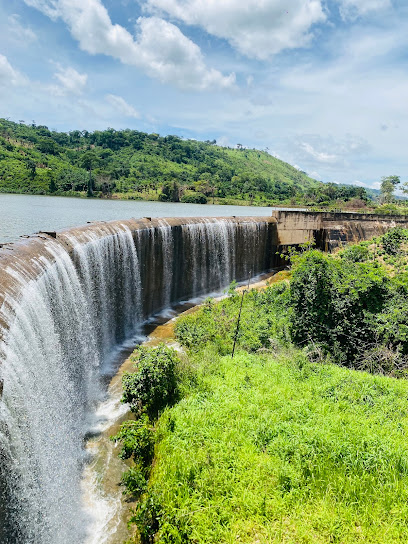
Roc Hôtel Atakpamé
Experience the warmth of Togolese hospitality at Roc Hôtel Atakpamé, a charming hotel perfect for exploring the beauty of Atakpamé.
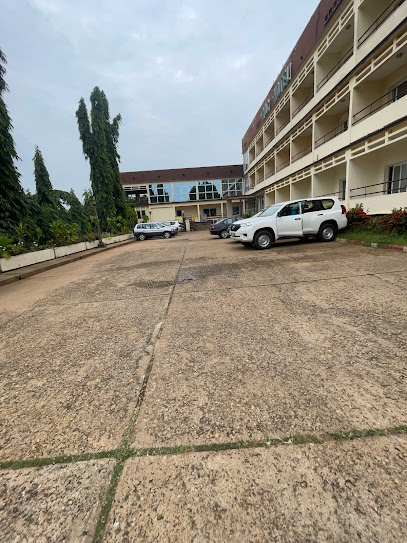
Le Sahelien
Experience comfort and local culture at Le Sahelien, your ideal hotel in Atakpame, Togo, surrounded by stunning landscapes and vibrant markets.
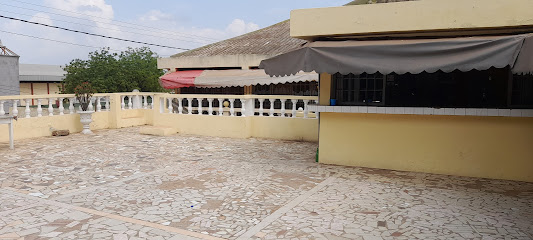
Chateau Viale
Explore the rich history and vibrant culture of Togo at Chateau Viale, Agomé Yo's captivating museum showcasing unique artifacts and local heritage.
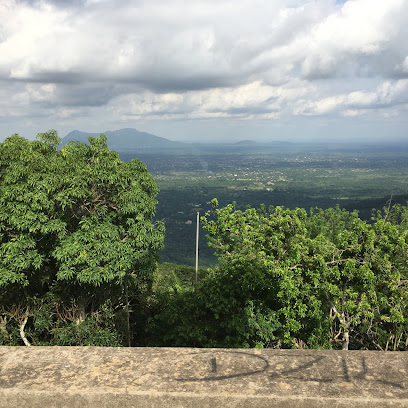
International Museum of the Gulf of Guinea
Discover the rich heritage of West Africa at the International Museum of the Gulf of Guinea, where art and history intertwine.
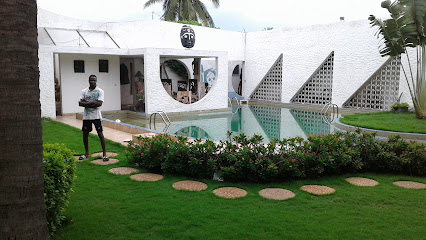
Cascade de Womé
Experience the breathtaking beauty of Cascade de Womé, a hidden gem in Kpalimé, Togo, perfect for nature lovers and adventure seekers.
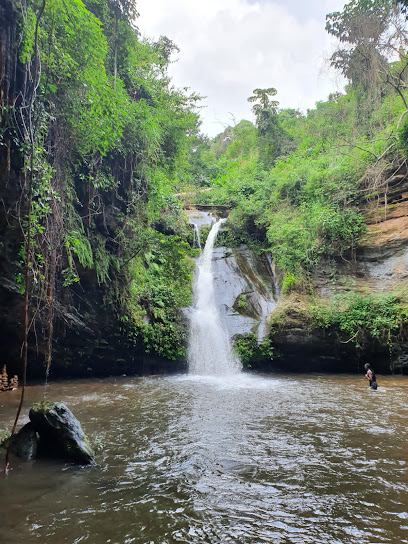
Monument au mort Kpalimé
Explore the Monument au Mort Kpalimé, a poignant tribute to soldiers' sacrifices, set in serene gardens in the vibrant city of Kpalimé.
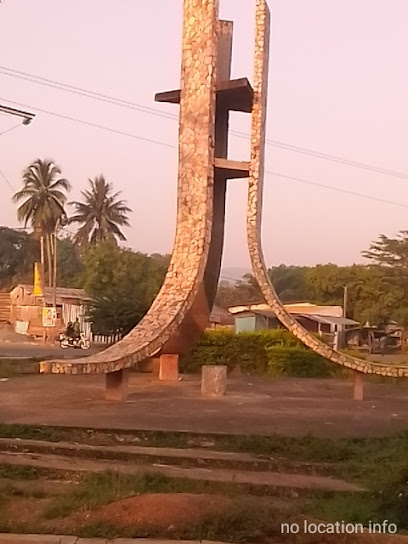
cascade de Yikpa
Explore the breathtaking Cascade de Yikpa in Likpe Bakwa, Ghana, a stunning waterfall surrounded by lush nature and adventure waiting to be discovered.
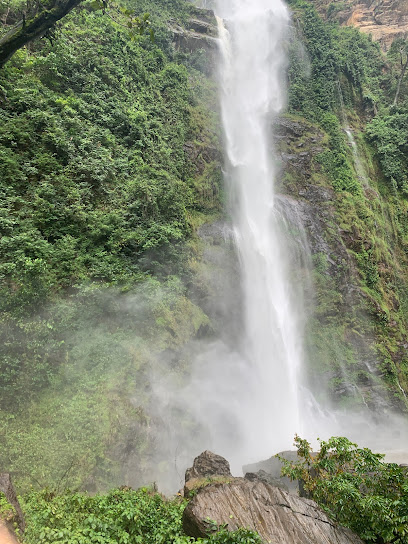
Bar 7 Collines
Experience the vibrant nightlife of Atakpamé at Bar 7 Collines, where local flavors and lively ambiance come together for an unforgettable evening.
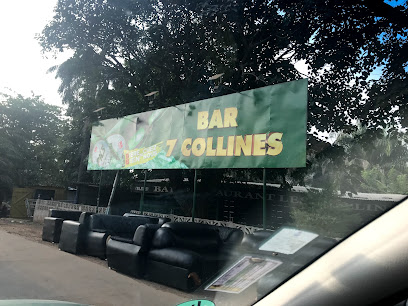
Atakpamé Hotri restaurant King
Discover authentic Togolese flavors at Atakpamé Hotri Restaurant King, a cozy guest house dining experience in the heart of Lomé.

Bar Apollon
Discover the lively atmosphere of Bar Apollon in Atakpame, a must-visit spot for drinks and local culture in Togo.
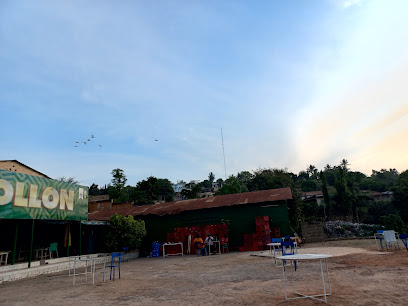
Kotadjou, Togo
Experience the vibrant culture and daily life in Kotadjou, Togo's charming town square, where tradition meets local craftsmanship.

Unmissable attractions to see
Wli Agumatsa Waterfalls
Experience the breathtaking beauty of Wli Agumatsa Waterfalls, Ghana's highest waterfall, surrounded by stunning nature and adventure.
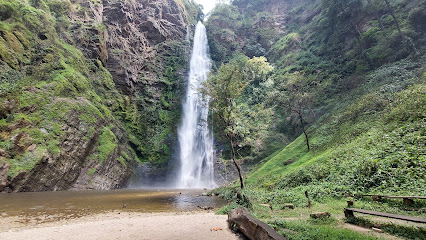
Koutammakou, the Land of the Batammariba
Explore the UNESCO World Heritage site of Koutammakou, where unique Batammariba architecture and vibrant culture await every traveler.
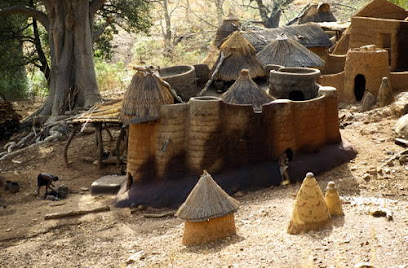
Likpe Todome
Experience the breathtaking landscapes and rich cultural heritage at Likpe Todome, a captivating destination in Hohoe, Ghana.
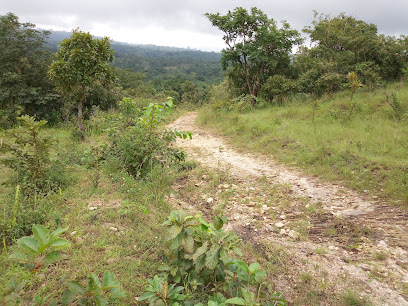
Essential places to dine
FOUFOU BAR
Discover authentic Togolese cuisine at FOUFOU BAR in Atakpame—where local flavors meet vibrant culture.
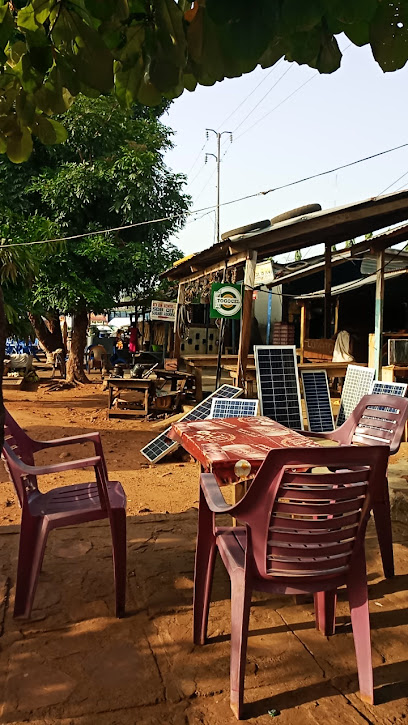
Atakpamé Hotri restaurant King
Discover authentic Togolese flavors at Atakpamé's beloved Hotri Restaurant King—where tradition meets taste in every dish.
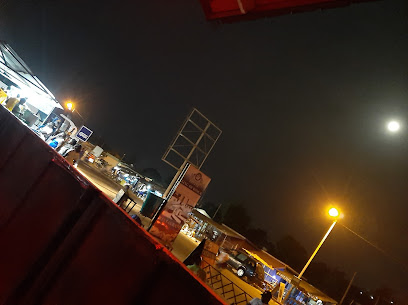
Bar CONNEXION
Experience the vibrant nightlife at Bar CONNEXION in Atakpame - where locals meet travelers for unforgettable moments.
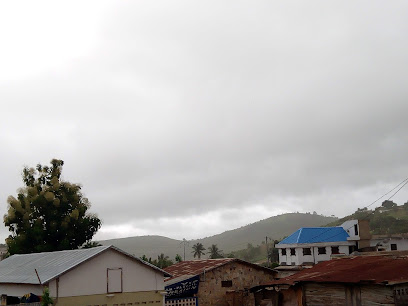
Bar King of Kings
Experience local flavor and vibrant nightlife at Bar King of Kings in Atakpame – where great drinks meet friendly faces.
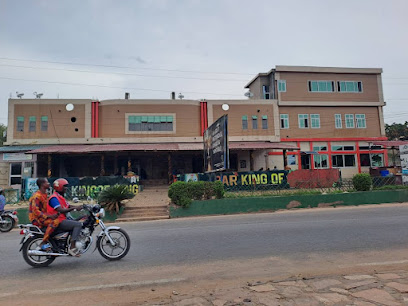
Calebasse D'or - Chez Ibrihim
Experience the lively charm of Calebasse D'or - Chez Ibrihim, where local flavors meet vibrant atmospheres in Atakpame.
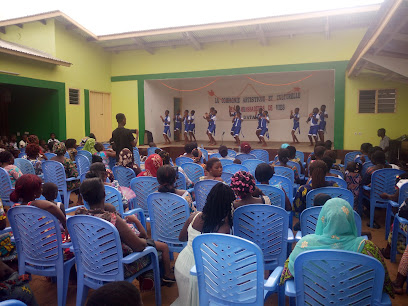
Bar restaurant Go Slow
Experience authentic Togolese cuisine at Bar Restaurant Go Slow in Atakpamé - a delightful blend of flavors and culture.
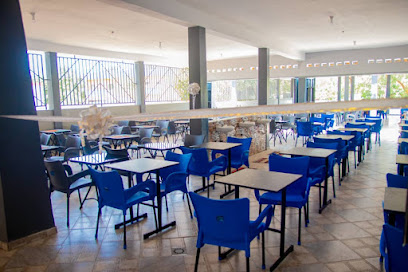
Porc au Four Chez Noël
Discover the authentic taste of Japan at Porc au Four Chez Noël, where every tonkatsu dish tells a story of flavor and tradition.
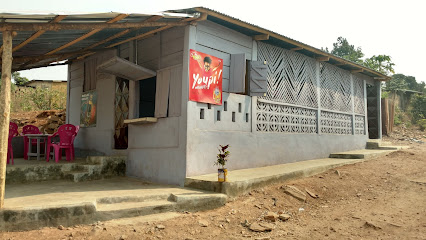
Bar La Cachette
Discover Bar La Cachette in Atakpame: A cozy bar offering local drinks and vibrant atmosphere perfect for relaxation and cultural experiences.
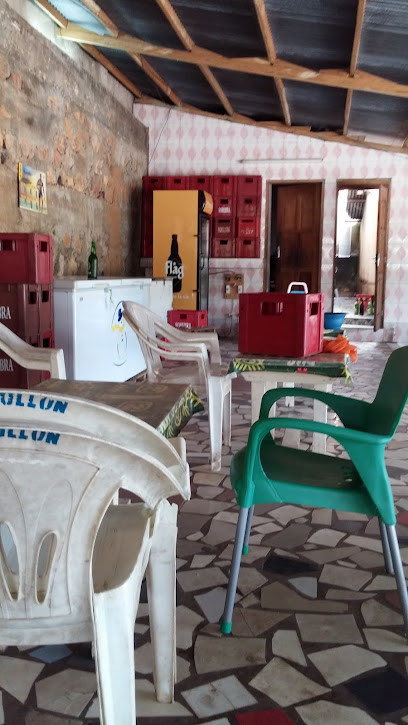
LA MOISSON
Experience authentic Togolese cuisine at La Moisson in Atakpame - where tradition meets flavor in a warm atmosphere.
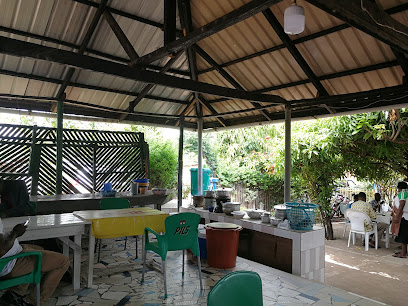
Bar LES EPERVIERS
Experience the vibrant nightlife at Bar LES EPERVIERS in N1 - where locals meet travelers over drinks in a lively atmosphere.

ETS ÉRÓ CHEZ GEORGES
Discover authentic Togolese flavors at ETS ÉRÓ CHEZ GEORGES, the perfect family-friendly dining experience in Atakpame.
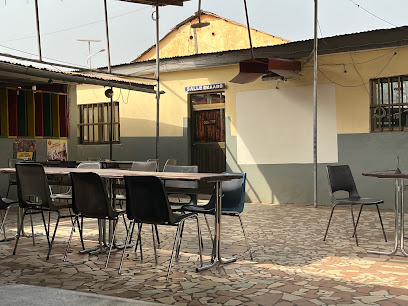
BAR RESTAURANT LA CONCORDE
Savor authentic Togolese cuisine at Bar Restaurant La Concorde in Atakpame, where every dish tells a story.

FOOD PLAZZA
Experience the vibrant flavors of Togo at Food Plaza – a fast-food haven in Atakpamé offering delicious meals for every taste.
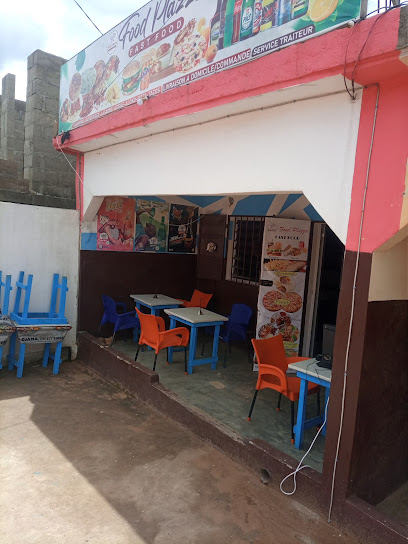
Restaurant ÉRÓ
Discover authentic Togolese cuisine at Restaurant ÉRÓ in Atakpamé, where tradition meets flavor in every dish.
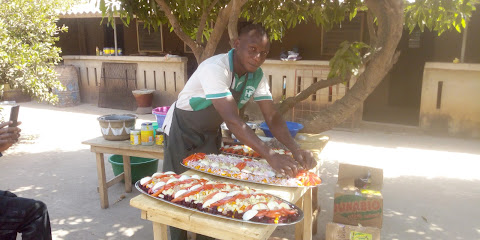
Bar Chez soi
Discover authentic African cuisine at Bar Chez Soi in Atakpame - where flavor meets friendly hospitality in a vibrant atmosphere.
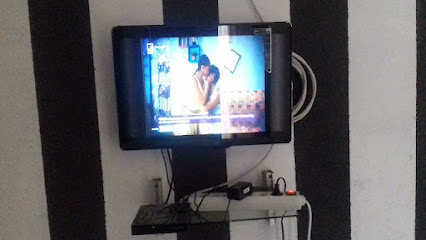
Markets, malls and hidden boutiques
Market Fruit Agbonou ATAKPAME
Explore the flavors of Togo at Market Fruit Agbonou, a vibrant produce market in Atakpame showcasing fresh fruits and local delicacies.
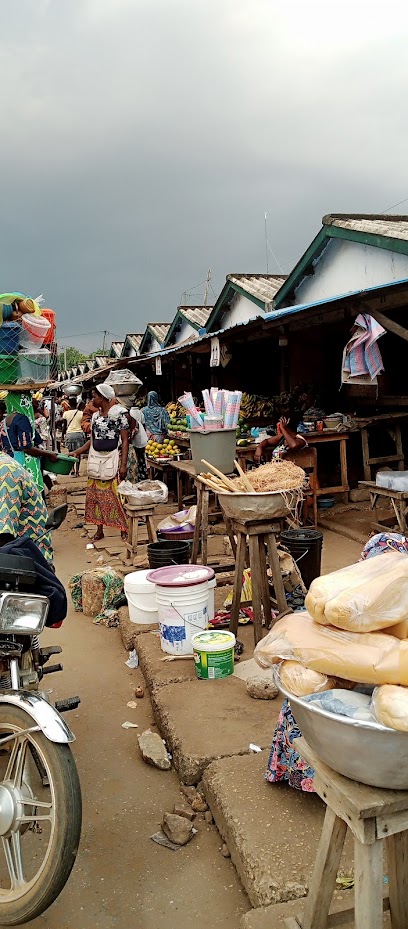
Grand marché d'Atakpamé
Discover the vibrant atmosphere of Grand Marché d'Atakpamé, where culture, crafts, and local flavors come together in a unique shopping experience.
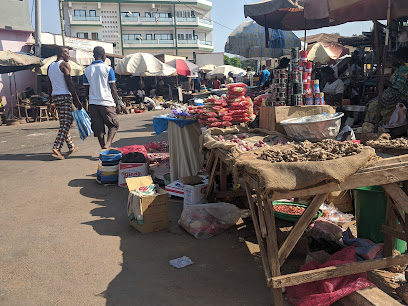
Angela Collection
Discover unique Togolese and contemporary fashion at Angela Collection in Atakpame - a fashion paradise for every traveler.

Falegnameria Atakpamé
Explore Falegnameria Atakpamé for exquisite wood and laminate flooring that showcases the artistry of local craftsmanship in Togo.
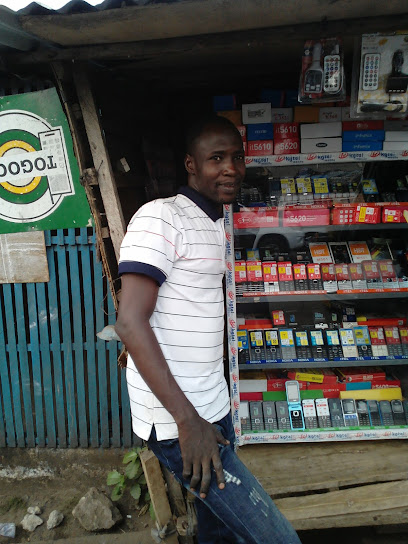
Marché de Temedja
Explore the vibrant Marché de Temedja, a bustling market filled with local crafts, traditional foods, and rich cultural experiences in the heart of Temedja.
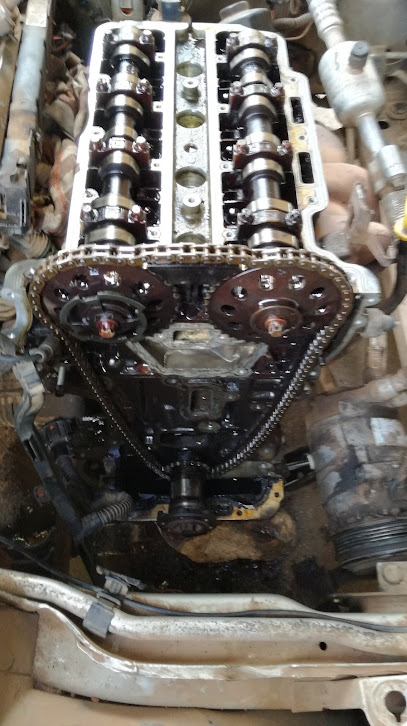
Espace Bleu
Explore cutting-edge technology and local gadgets at Espace Bleu, Atakpame's premier electronics store, for an unforgettable shopping experience.
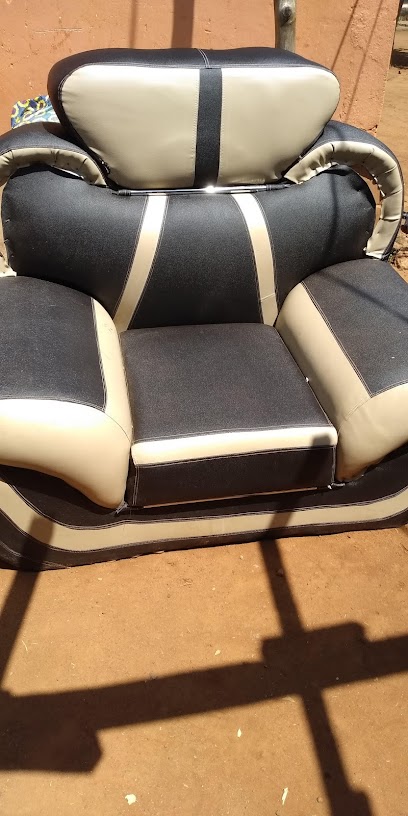
Moov store Atakpamé
Explore Atakpamé's vibrant shopping scene at Moov Store, where local culture meets modern retail with a diverse range of products.
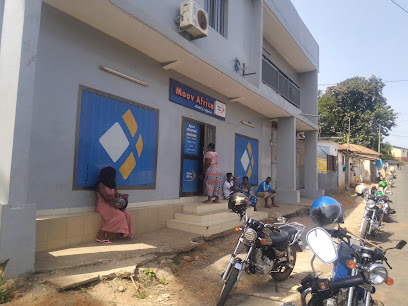
Marché aux poissons d'Agbonou
Experience the vibrant flavors and culture at Marché aux Poissons d'Agbonou, a must-visit fish market in N1 showcasing fresh seafood and local traditions.
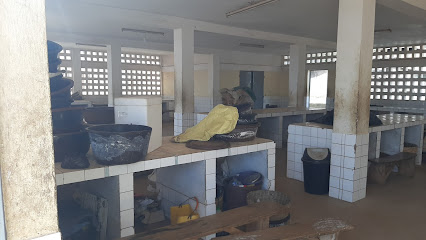
BOUTIQUE COSMETIQUE
Explore the enchanting world of beauty at Boutique Cosmetique, where quality meets elegance in a unique shopping experience.
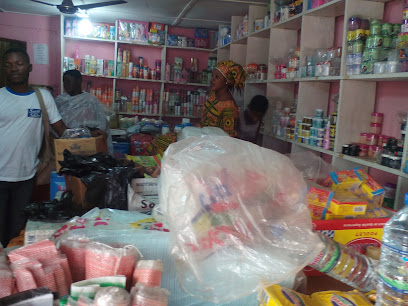
CRISTEC-INFO
Explore CRISTEC-INFO in Atakpame for the latest in electronics, blending local charm with cutting-edge technology.
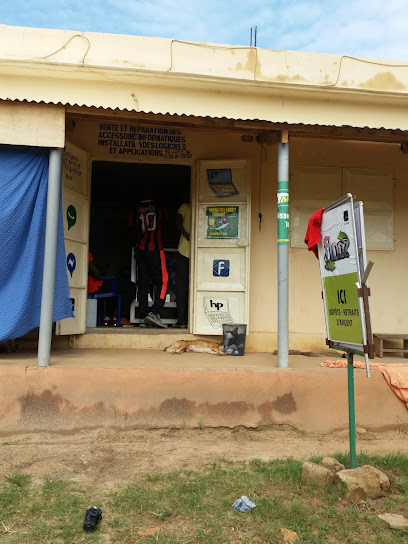
Aklala Batik Du Togo à Lomé
Explore Aklala Batik Du Togo in Lomé for authentic batik textiles and unique gifts that embody Togolese culture and artistry.
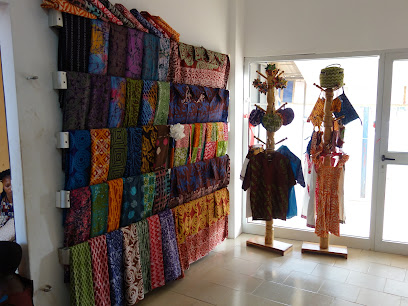
CAMEG Atakpamé
Discover CAMEG Atakpamé, your trusted pharmacy for health essentials and advice in the heart of Togo, ensuring a safe and enjoyable trip.
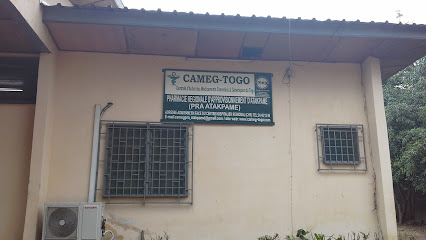
The Korner Shop lomé
Explore the vibrant artistry of Togo at The Korner Shop, offering unique handicrafts and gifts that reflect the rich culture of Lomé.
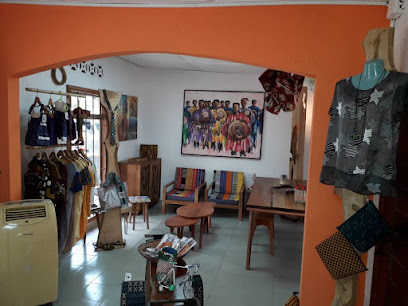
Ste jpkaf
Discover the vibrant flavors and local products at Ste jpkaf, a premier supermarket in Atakpamé, Togo.
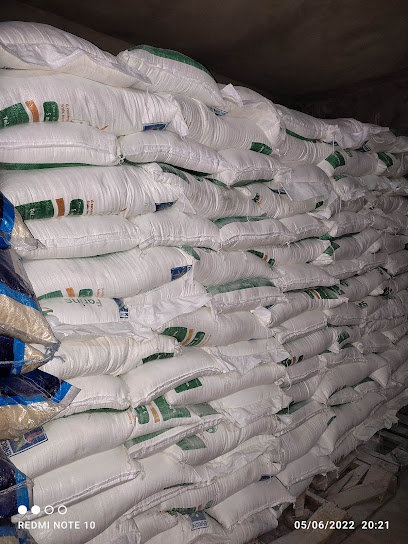
Déo Gracias shop
Discover the essence of Togolese youth culture at Deo Gracias Shop in Atakpamé, where fashion meets local vibrancy and creativity.
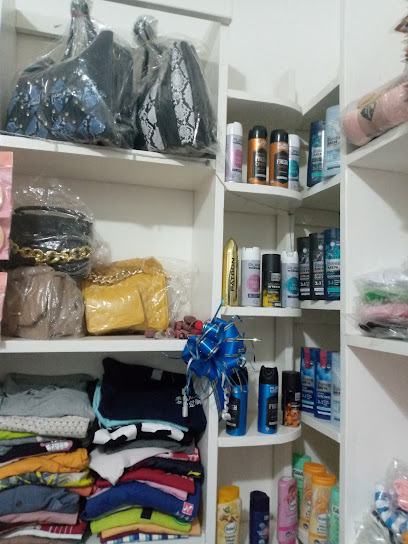
Essential bars & hidden hideouts
Bar CONNEXION
Experience the vibrant nightlife of Atakpame at Bar CONNEXION, where local culture meets refreshing drinks and lively entertainment.
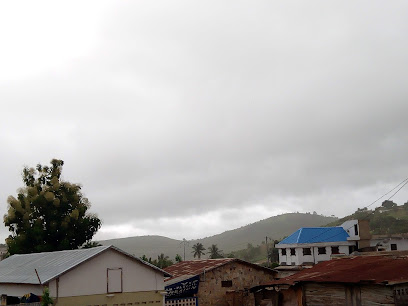
Bar King of Kings
Discover the lively spirit of Atakpame at Bar King of Kings, where affordable drinks and a vibrant atmosphere await.
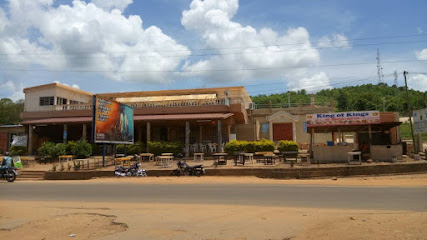
Calebasse D'or - Chez Ibrihim
Discover the lively charm of Calebasse D'or - Chez Ibrihim, a bar in Atakpame offering delightful drinks and a taste of Togolese culture.
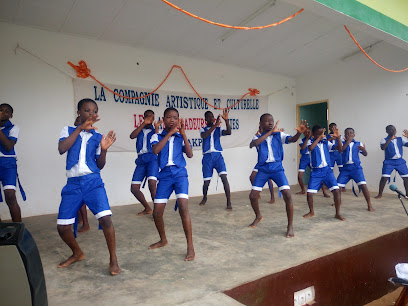
Bar restaurant Go Slow
Experience the culinary delights of Togo at Bar Restaurant Go Slow in Atakpame, where delicious local dishes and a friendly atmosphere await.
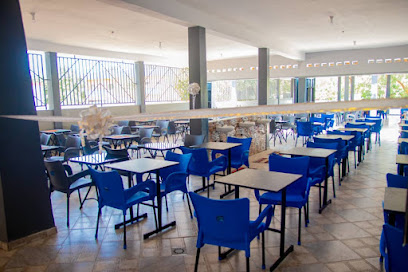
Bar La Cachette
Experience the vibrant local nightlife at Bar La Cachette, a cozy bar in Atakpame offering refreshing drinks and a friendly atmosphere.
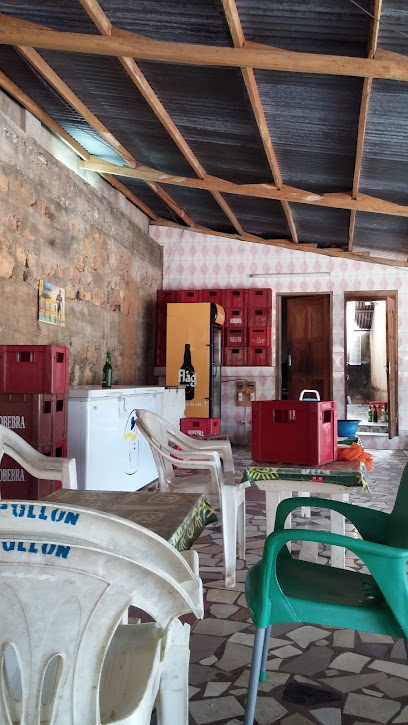
Bar Chez soi
Experience local hospitality at Bar Chez soi in Atakpame, where cozy ambiance meets authentic Togolese flavors for a relaxing evening.
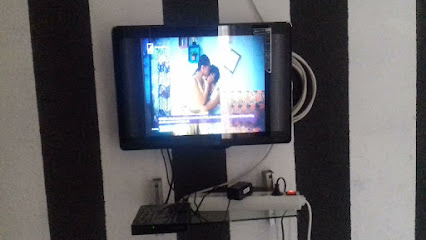
Bar 7 Collines
Discover the lively ambiance of Bar 7 Collines in Atakpamé, where local flavors and vibrant nightlife create unforgettable experiences.
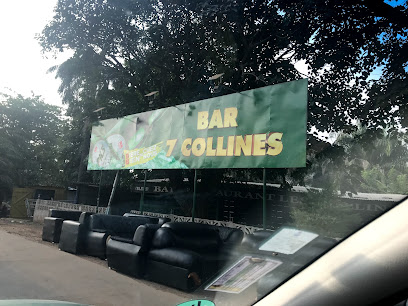
Bar shuber@
Discover the vibrant atmosphere of Bar Shuber@ in Atakpame, where refreshing drinks and local culture come together for an unforgettable experience.
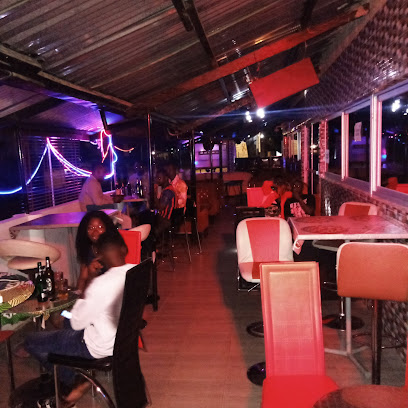
BAR MARA-CANA
Experience the lively spirit and local flavors at BAR MARA-CANA, the ultimate bar destination in Atakpame, Togo.
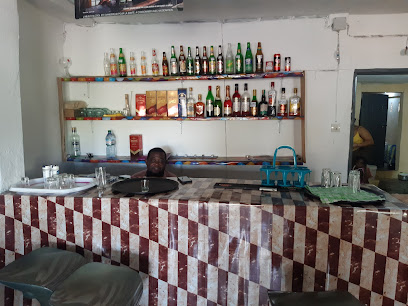
Bar ONCLE SAM
Experience the vibrant atmosphere of Bar ONCLE SAM in Atakpame, where delightful drinks and local charm come together for an unforgettable night.
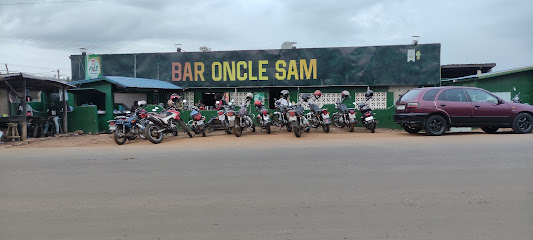
Bar_ Restaurant DEO-GRACIAS
Discover the essence of Togolese culture at Bar Restaurant DEO-GRACIAS, where delicious food and vibrant social life come together in Atakpame.
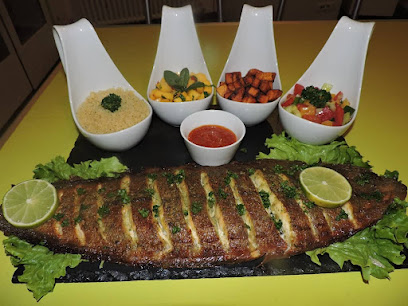
Le ROSSIGNOL
Discover the vibrant local nightlife at Le ROSSIGNOL, a charming bar in Atakpame that offers a taste of authentic Togolese culture.

New Maquis Miss des Miss Auberge
Discover the lively New Maquis Miss des Miss Auberge in Atakpamé, where local culture meets a vibrant bar atmosphere for a unique experience.
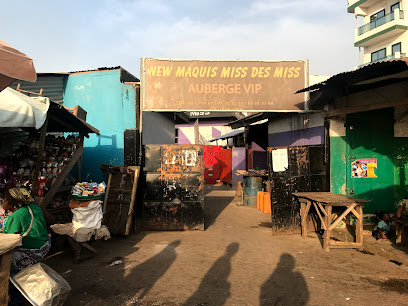
Bar Apollon
Discover Bar Apollon in Atakpame, where vibrant nightlife meets local hospitality, offering a unique drinking experience in the heart of Togo.
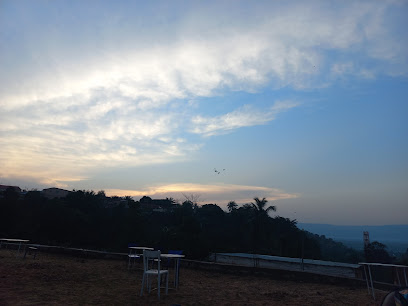
Local Phrases
-
- HelloAkwaaba
[ah-kwah-bah] - GoodbyeAane
[ah-neh] - YesEe
[ay] - NoDa
[dah] - Please/You're welcomeMae
[may] - Thank youAkpe
[ah-kpeh] - Excuse me/SorryKoh
[koh] - How are you?Ko ɖe ɖe?
[koh deh deh] - Fine. And you?Afe aɖe. Ne va?
[ah-fay ah-deh. neh vah] - Do you speak English?O wò blòo Anglìgì?
[oh woh bloo ahn-glee-glee] - I don't understandMi ɖɔwò nù
[mee doh-woh noo]
- HelloAkwaaba
-
- I'd like to see the menu, pleaseMì meɖe wo kple menu, kɔ e
[mee meh-deh woh kpleh menu, koh ay] - I don't eat meatMi ɖɔwò asiglinu
[mee doh-woh ah-see-glee-noo] - Cheers!Dzodzɔ!
[joh-joh] - I would like to pay, pleaseMì meɖe wo kple sika, kɔ e
[mee meh-deh woh kpleh see-kah, koh ay]
- I'd like to see the menu, pleaseMì meɖe wo kple menu, kɔ e
-
- Help!Gba!
[gbah] - Go away!Wòe!
[woh-eh] - Call the Police!Vɔlɔ Polisi!
[voh-loh poh-lee-see] - Call a doctor!Vɔlɔ dokita!
[voh-loh doh-kee-tah] - I'm lostMi ɖe dzi
[mee deh dzee] - I'm illMi ɖe kple zin
[mee deh kpleh zeen]
- Help!Gba!
-
- I'd like to buy...Mì meɖe wo kple...
[mee meh-deh woh kpleh] - I'm just lookingMì siwoe ɖe
[mee see-woh-eh deh] - How much is it?Eyi ɖe eyi?
[eh-yee deh eh-yee] - That's too expensiveEyi ɖe ɖeŋu
[eh-yee deh deh-ngoo] - Can you lower the price?O ɖo nù nɔvi ŋu?
[oh doh noo noh-vee ngoo]
- I'd like to buy...Mì meɖe wo kple...
-
- What time is it?Eyi ɖe eyi?
[eh-yee deh eh-yee] - It's one o'clockEyi ɖe eɖe blibo
[eh-yee deh eh-deh blee-boh] - Half past (10)Eyi ɖe ɖeŋu (10)
[eh-yee deh deh-ngoo] - MorningAtã
[ah-tah] - Afternoonɖeɖe
[deh-deh] - Eveningdɔdɔ
[doh-doh] - YesterdayBlibo
[blee-boh] - TodayAnã
[ah-nah] - TomorrowAdã
[ah-dah] - 1Yi
[yee] - 2Eɖe
[eh-deh] - 3Eha
[eh-hah] - 4Enɔ
[eh-noh] - 5Eɖa
[eh-dah] - 6Evi
[eh-vee] - 7Ewo
[eh-woh] - 8Eya
[eh-yah] - 9Eɖo
[eh-doh] - 10Plibo
[plee-boh]
- What time is it?Eyi ɖe eyi?
-
- Where's a/the...?Ʋ va...
[oo vah] - What's the address?Ʋ va ɖe adrɛsi?
[oo vah deh ah-dreh-see] - Can you show me (on the map)?O ɖo me wo (ɖe tɔgblɔ)?
[oh doh meh woh deh toh-gbloh] - When's the next (bus)?Ʋ va ɖe tso ɖe miɖe (bɔs)?
[oo vah deh tsoh deh mee-deh bohss] - A ticket (to ....)Woɖe (wo ....)?
[woh-deh woh]
- Where's a/the...?Ʋ va...
History of Atakpamé
-
Atakpamé, located in the Plateaux Region of Togo, traces its origins to early indigenous settlements. The Ewe people, one of the predominant ethnic groups in the area, are thought to have migrated from Nigeria and settled in the region. These early communities established themselves by farming and trading, laying down the cultural and economic foundations of what would become Atakpamé.
-
In the late 19th century, Atakpamé came under German colonial rule as part of Togoland. The Germans invested in infrastructure projects, including roads and railways, to facilitate the export of agricultural products. Atakpamé became a crucial administrative and commercial hub during this period. The colonial architecture from this era can still be seen in some parts of the town, reflecting the German influence on its urban development.
-
Following Germany's defeat in World War I, Togoland was divided between Britain and France. Atakpamé fell under French control, becoming part of French Togoland. The French continued to develop the town's infrastructure and also introduced their educational and administrative systems. This period saw a blend of French and local cultures, which significantly influenced the town’s social and cultural landscape.
-
Togo gained independence from French colonial rule in 1960. Atakpamé, like much of the country, experienced significant changes during this time. The town saw the establishment of various public institutions, schools, and healthcare facilities. The post-independence era was marked by efforts to modernize the town while preserving its rich cultural heritage.
-
Atakpamé is renowned for its vibrant cultural scene, particularly its festivals. The Yam Festival, one of the town’s most significant events, celebrates the yam harvest and is marked by traditional dances, music, and rituals. The town is also known for its skilled artisans who produce intricate textiles and handicrafts, reflecting the rich cultural traditions passed down through generations.
Atakpamé Essentials
-
Atakpamé is located in the Plateaux Region of Togo. The nearest international airport is Gnassingbé Eyadéma International Airport in Lomé, approximately 160 kilometers away. From Lomé, you can take a bus or hire a private taxi to Atakpamé. The journey typically takes around 3 to 4 hours by road. Alternatively, you can take a minibus (bush taxi) from Lomé, which is a more economical option and can be found at the main bus stations.
-
Atakpamé is a moderately-sized town, and many of its attractions are accessible on foot. For longer trips within the town or to nearby villages, local taxis and motorcycle taxis (zemidjans) are readily available and relatively inexpensive. Public minibuses also operate within the town. Renting a car can be an option for more flexibility, but road conditions can be challenging, so it’s advisable to rent a 4x4 vehicle.
-
The official currency in Togo is the West African CFA franc (XOF). Credit cards are not widely accepted, so it is advisable to carry cash. There are a few ATMs in Atakpamé, but it is wise to withdraw sufficient cash in Lomé before traveling to ensure you have enough funds. Currency exchange services are available in major towns, but rates may vary.
-
Atakpamé is generally a safe destination for tourists, but standard precautions should be taken. Avoid walking alone at night in unfamiliar areas and keep an eye on your belongings in crowded places. While Atakpamé does not have specific high-crime areas targeting tourists, it is always best to stay vigilant and aware of your surroundings. Petty theft can occur, so keep your valuables secure.
-
In case of emergency, dial 117 for police assistance or 118 for medical emergencies. There is a local hospital in Atakpamé and several pharmacies where you can get over-the-counter medications. It is recommended to have travel insurance that covers medical emergencies. For serious medical issues, you may need to be transferred to a larger hospital in Lomé.
-
Fashion: Do dress modestly, especially when visiting religious sites and rural areas. Avoid wearing revealing clothing. Religion: Do respect local customs and traditions. Always remove your shoes and cover your head when entering religious sites. Public Transport: Do be respectful and give up your seat to elderly passengers. Greetings: Do greet people with a handshake or a slight nod of the head. A friendly smile goes a long way. Eating & Drinking: Do try local delicacies and accept food offerings graciously. Don't refuse hospitality, as it is considered impolite.
-
To experience Atakpamé like a local, visit the bustling markets where you can buy fresh produce, crafts, and traditional Togolese goods. Engage with the locals, who are often friendly and willing to share stories about their culture and history. Don't miss visiting the nearby Mount Agou, the highest point in Togo, which offers stunning views and hiking opportunities. For a unique experience, try the traditional palm wine, a popular local beverage.
Trending Landmark in Atakpamé
Nearby Cities to Atakpamé
-
Things To Do in Notse
-
Things To Do in Kpalimé
-
Things To Do in Lokossa
-
Things To Do in Ho
-
Things To Do in Aneho
-
Things To Do in Lomé
-
Things To Do in Ouidah
-
Things To Do in Cotonou
-
Things To Do in Porto-Novo
-
Things To Do in Koforidua
-
Things To Do in Abeokuta
-
Things To Do in Accra
-
Things To Do in Lagos
-
Things To Do in Tamale
-
Things To Do in Ibadan







